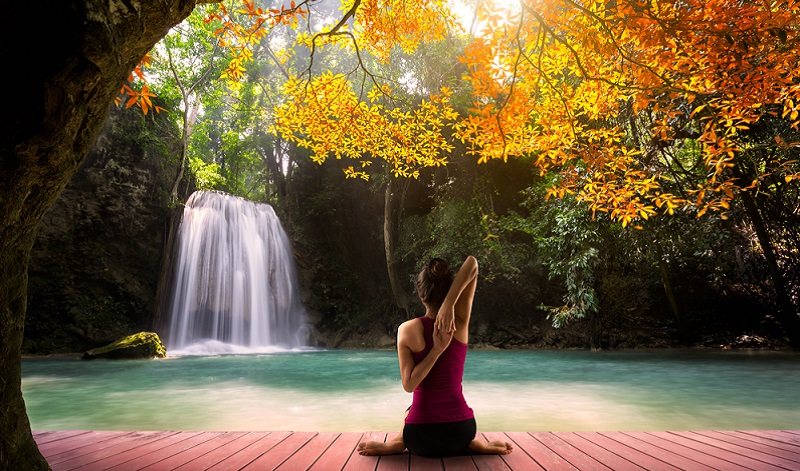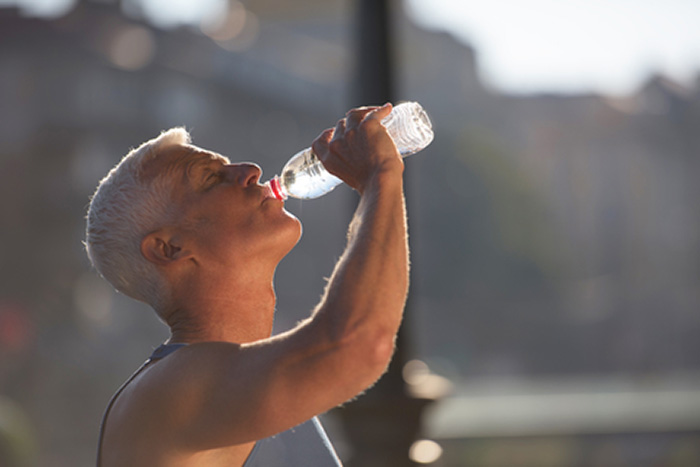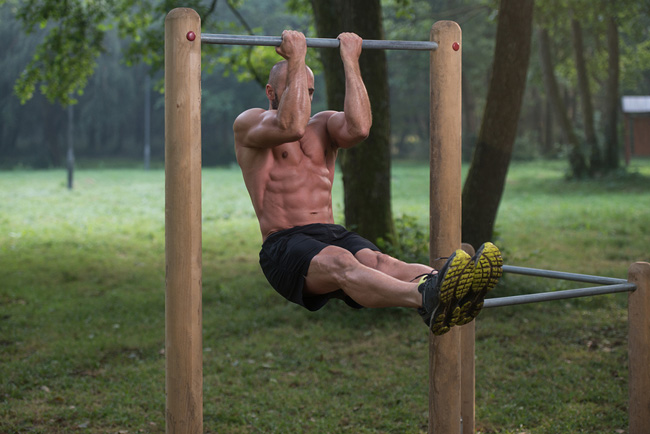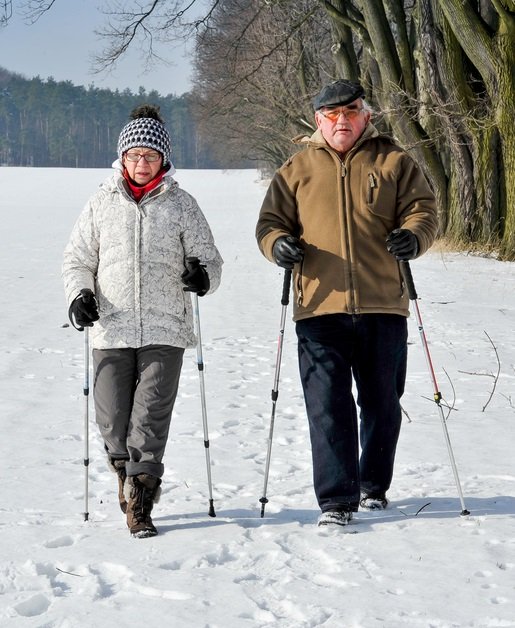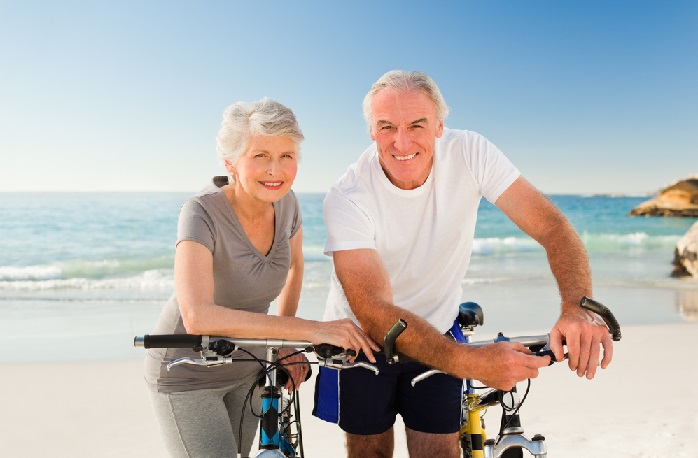Hiking for Health -- both physical and mental
You may consider hiking for health based upon a growing body of evidence linking the beneficial environmental aspects of this form of exercise. Scientists and health experts are finding that there is a synergistic effect between physical exercise and being outdoors.
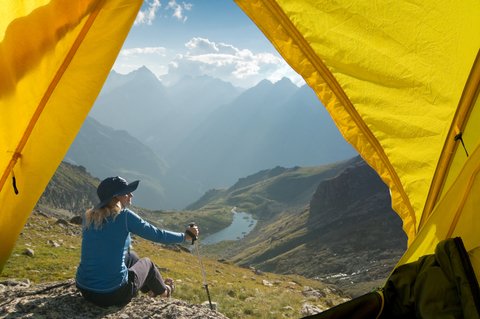
Studies involving mountainous hiking indicate that it surpasses long walks. Among research participants, long walks outdoors were considered more pleasurable than indoor treadmills. However, although hiking is the more strenuous of the two forms of exercise, the perceived exertion for hiking outdoors was lower.
Engaging in outdoor exercise is linked to better physical and mental health. Studies show that mountain hiking for 2-3 hours produces positive effects such as: pain reduction, increased immune function, calmness, decreased anxiety, feeling revitalized, reduced blood pressure, increased self-esteem, reduction in negative moods such as anger and tension, restored focus, an overall anti-inflammatory effect, and improved cognitive function. There was significant decrease in hopelessness, depression, and suicide ideation among high-risk suicide patients during mountain hiking.
Not only do plants and trees release compounds that promote healthy biological changes, a Stanford University study found that natural environments calm a part of the brain that has links to mental illness.
It is noteworthy that all of these effects are enhanced by both duration and intensity.
Consider Hiking for Health to Increase Fitness
Once you experience the benefits of outdoor activities, you just may get hooked – particularly, if you have problems adhering to an exercise program. Finding something you really enjoy can make a world of difference. People who exercise outdoors report that it is more enjoyable; and it is more likely that you will continue exercising because of the resulting positive biological and physical feedback.
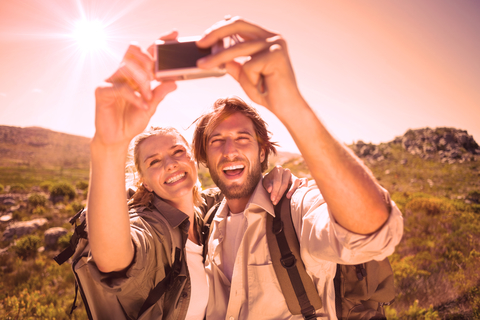
You may prefer long walks; but, there are bio-mechanic
differences between walking on smooth surfaces and complex natural surfaces.
The differences include knee and hip mechanics, and varied muscle activity.
These changing demands distinguish walking on fairly flat terrain from hiking.
You may be one of those individuals that prefers moving barbells, or trotting along on a treadmill. Those are both excellent workouts, and you don't want to give them up. The drawback is that the movements don’t mimic real-world functionality, such as hiking.
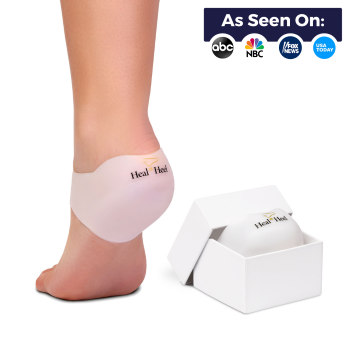
Hiking for health would be a great addition to your lifestyle activities. Going for a hike addresses an important element of fitness – natural movement. When you are hiking, your ankles, knees, and joints are shifting to accommodate rocks and logs.
Hiking is also great for mental health. Hiking on a trail isn’t mindless. You need to focus on balance and where you are placing your foot. Imagine getting your mind off whatever has been looping through your head -- something psychologists call "ruminating." Ruminating tends to be self-focused patterns of thought linked to anxiety and depression.
If you aren't on a trail that requires paying attention to foot placement, the repetitive motion of stepping is a proven meditative activity that decreases stress and lowers cortisol levels.
Another perk is that you can control how strenuous it is!
Hiking Tips
The following list is not exhaustive; but, it's a start.
- Always check the weather conditions prior to going for a hike.
- Search online for hiking trails in your area. Most of them are rated by difficulty.
- Be sure to have a map or an app on your phone that maps trails and uses GPS. There’s also a compass app you can get for your phone.
- Always let someone know when and where you plan to hike.
- Never approach or feed wild animals!
- Bring the right clothing. Layer for temperature changes and prepare for the possibility of rain.
- You may consider using hiking poles.
- Carry snacks and plenty of water.
- Invest in appropriate footwear. If anything can ruin a hike, it's foot problems.
If you would like more information, The American Hiking Society lists ten things to take on every hike. My Open Country is another great resource for guides to develop your hiking skills, recommendations for the best gear on the market, and potential destinations.
If you are thinking about hiking for health, but don’t have access to mountains or hills, there is an alternative. Although mountainous hiking is best, exercising in green, or natural spaces, is considered more beneficial for health than indoor exercise. Studies demonstrate that even exposing patients to natural or virtual outdoor environments can reduce both postoperative recovery and analgesic requirements.
So, get outdoors and begin hiking for health.
More Topics That May Interest You
Some of the advertisers on my website are affiliate partners, which means that I may receive a small commission from any sale, at no extra cost to you. For example, as an Amazon Associate I earn a small commission from qualifying purchases.
Your purchases help to support this free-information website. Thank you.
The content of this website is for informational purposes only and not intended to be taken as a replacement for professional medical advice, care, diagnosis or treatment by a doctor, dietitian, physical therapist, nutritionist or fitness instructor.
DO NOT BEGIN ANY EXERCISE PROGRAM WITHOUT CHECKING WITH YOUR DOCTOR FOR UNDERLYING CONDITIONS THAT MAY PREVENT YOU FROM DOING SO.
